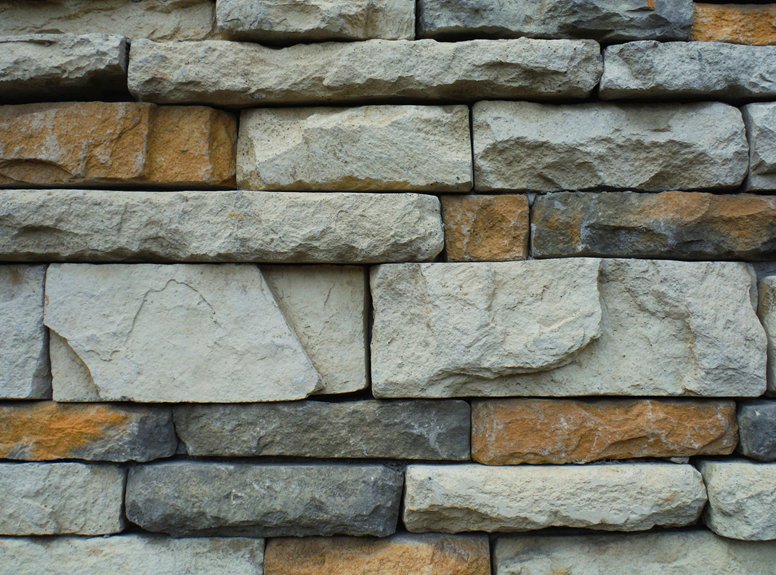Builder stone refers to natural stones such as granite, limestone, sandstone, marble, and slate that are employed in construction due to their strength and durability. These materials are assessed based on properties like hardness, crushing strength, toughness, and resistance to weathering, which dictate their suitability for various structures.
Different types of builder stone are selected for specific applications, ranging from walls to flooring, influenced by their aesthetic appeal and functional performance. A thorough understanding of these characteristics ensures long-lasting and safe construction.
By recognising how each property impacts practical use, builders and architects can make informed decisions that enhance the quality and longevity of their projects. This knowledge is crucial for selecting the right stone to meet the demands of diverse building needs while maintaining an appealing finish.
Key Properties and Characteristics of Building Stone
Building stones possess several key properties that determine their suitability for construction and overall durability. Hardness reflects how well a stone resists surface wear, scratches, and abrasion—granite, for example, ranks highly on the Mohs scale. Crushing strength indicates how much load a stone can support; granite and marble demonstrate impressive resistance, while sandstone tends to be less robust. Tough stones can withstand impacts and vibrations, contributing to the longevity of structures. Durability involves the ability to resist weathering, chemical attack, and mechanical erosion—igneous and metamorphic stones are generally more durable due to their dense crystalline structure. Water absorption is also a significant factor; stones with low porosity effectively prevent frost damage and degradation over time. Additionally, the specific gravity of good building stones tends to be greater than 2.7, which correlates with their weight and strength properties.
Types and Uses of Building Stone
Different types of natural stones are selected for construction based on their distinctive properties and appropriateness for various applications.
Igneous stones, such as granite, are known for their durability and moisture resistance, making them ideal for use in kitchen countertops and monuments.
Sedimentary stones, including limestone and sandstone, are favoured for walls, facades, and paving due to their ease of cutting and handling.
Metamorphic stones like marble and slate are prized for flooring, decorative features, and roofing because of their polished finish and natural ability to split into thin sheets.
Processed stones, such as stone veneer and crushed stone, are often used for decorative purposes or as aggregates in concrete.
The selection of stone depends on the specific requirements of a project, taking into account factors such as strength, appearance, and longevity.
These stones form the foundation for creating structures that endure and enhance their surroundings.
| Type of Stone | Common Uses | Notable Properties |
|---|---|---|
| Granite | Counters, monuments | Hard, frost resistant |
| Marble | Floors, sculptures | Polished, aesthetic |
| Sandstone | Walls, paving | Layered, moderate strength |
In addition, the porosity of a stone influences its suitability for different environments, with less porous stones being preferred in moisture-prone areas to prevent damage.
Testing and Evaluation of Building Stones
Testing and evaluating the properties of building stones is a crucial step in determining their suitability for construction projects. Various tests assess a stone’s physical and mechanical qualities to ensure it meets essential safety and durability standards. For instance, standard methods assess porosity by measuring absorption, while load tests evaluate how much weight a stone can endure before failure. Flexural tests check a stone’s resistance to bending, which is particularly important for applications such as cladding or paving. Non-destructive testing methods, such as ultrasonic pulse velocity testing, reveal potential internal flaws by measuring the speed of sound waves through the material. Stones are examined under both dry and wet conditions to understand how moisture influences their strength. This is vital because moisture content can significantly affect a stone’s performance and durability. These rigorous standards assist builders in selecting the appropriate stone, guaranteeing structures that aren’t only long-lasting and safe but also aesthetically pleasing.
Conclusion
Building stone possesses essential properties such as durability, strength, and aesthetic appeal, making it ideal for various construction requirements. Different types of stones serve specific purposes, ranging from structural support to decorative elements. Rigorous testing and evaluation guarantee that the stones conform to quality standards for safety and longevity.
Understanding these facets is crucial for selecting the appropriate stone for each project, ensuring that structures are both dependable and visually pleasing. Accurate assessment and judicious use of building stone are vital for successful construction practices.

